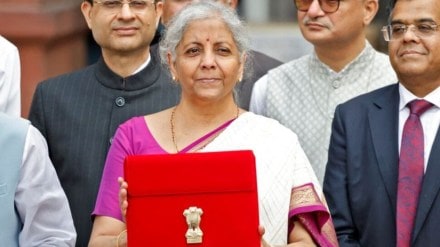In her seventh consecutive Union Budget speech, Finance Minister Nirmala Sitharaman emphasised the government’s commitment to equipping and empowering the youth, recognising it as a cornerstone for national prosperity. The minister highlighted several key initiatives and policies aimed at fostering a robust educational and skills development framework to prepare the younger generation for future challenges.
NEP 2020: Transformational reforms
The National Education Policy (NEP) 2020 has been a significant milestone in the Indian education system, bringing about transformational reforms. This policy aims to overhaul the existing educational structure, emphasising holistic development, critical thinking, and creativity. NEP 2020 promotes multilingualism, experiential learning, and the integration of technology in education, ensuring that students are well-prepared for the modern world.
PM ScHools for Rising India (PM SHRI)
Another pivotal initiative mentioned in the budget speech is the PM ScHools for Rising India (PM SHRI). These schools are dedicated to delivering quality education and nurturing well-rounded individuals. PM SHRI schools focus on creating an inclusive learning environment, encouraging students to excel academically while also developing essential life skills. This initiative aligns with the NEP 2020’s vision of providing equitable and high-quality education to all.
Skill India Mission: Training and upskilling
The Skill India Mission has been instrumental in addressing the skills gap in the country. According to the finance minister, this mission has trained 1.4 crore youth and upskilled and reskilled 54 lakh individuals. The establishment of 3,000 new Industrial Training Institutes (ITIs) has further bolstered vocational training, providing numerous opportunities for the youth to acquire industry-relevant skills. This focus on skill development is crucial for enhancing employability and fostering economic growth.
Expansion of higher education institutions
The budget speech also highlighted the significant expansion of higher education institutions across the country. The government has established a large number of new institutions, including seven Indian Institutes of Technology (IITs), sixteen Indian Institutes of Information Technology (IIITs), seven Indian Institutes of Management (IIMs), fifteen All India Institutes of Medical Sciences (AIIMS), and 390 universities. This expansion aims to provide greater access to quality higher education, encouraging research and innovation.
A vision for the future
The government’s commitment to equipping and empowering the youth is evident in its comprehensive approach to education and skills development. By implementing transformational reforms through NEP 2020, enhancing the quality of education with initiatives like PM SHRI, and addressing the skills gap with the Skill India Mission, the government is laying a strong foundation for the future.
